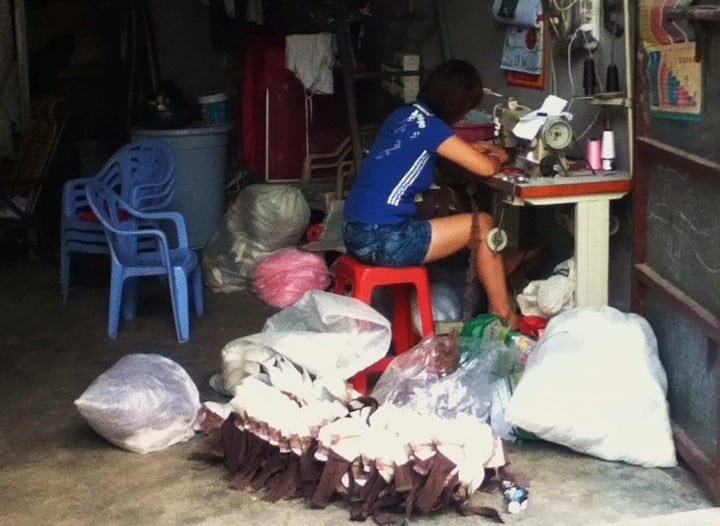[slideshow_deploy id=’5369′]
While living in Shantou, Guangdong during the fall, I had the opportunity to visit a school where some of my friends work. Small shops, family businesses, and homes lined the streets of the small town. Billboard signs hung above the buildings mostly advertising bras and underwear. It quickly became apparent why this was: the small factories here produce the parts for undergarments.
While walking around, I began to realize that most of the “factories” weren’t what I had expected. They were small and crowded, usually located on the upper floors of people’s homes. I saw piles of metal clips and straps as we passed by. These home-factories make the metal clips for the adjustable strap on a bra. The clips are then sent to the big factories on the coast where the bra is assembled. It gave a new meaning to ‘Made in China.’
This is when I also began to really understand China’s urban-rural divide. Many of the students in this area are also factory workers. They sometimes come home after school and go to work for a few hours, earning money either for themselves or for their family.
Some of the families in this area are fairly well-off because of their small home factories. Others have not been so successful and live in homes with no doors or windows. This stark contrast plays out in the school through fights as well as friendships.
A constant challenge my friends face as teachers is motivating their students to want to be (and remain) in school. Many parents are not supportive of their child’s education and push their children to work instead. Since high school is expensive and the zhong kao (the high school entrance exam) is very difficult, they think, “What’s the point?”
The reality is that many students drop out during middle school. They believe that making money outweighs the ‘benefits’ of education. For them education is actualy a struggle. Tests in China do not favor those in rural areas. It is much easier for a student in a big city to pass the exam and get into a decent high school and eventually university than it is for a rural kid, not to mention the gap in resources between urban and rural.
A friend of mine recently posted on Facebook that five of her students from her 9th grade English class dropped out over Spring Festival break. Their life trajectory is now essentially set for them. They will work in the factories, marry young, and have their own families. It is a tough system and when the odds are stacked against you, I wonder, what motivates them to keep studying?


